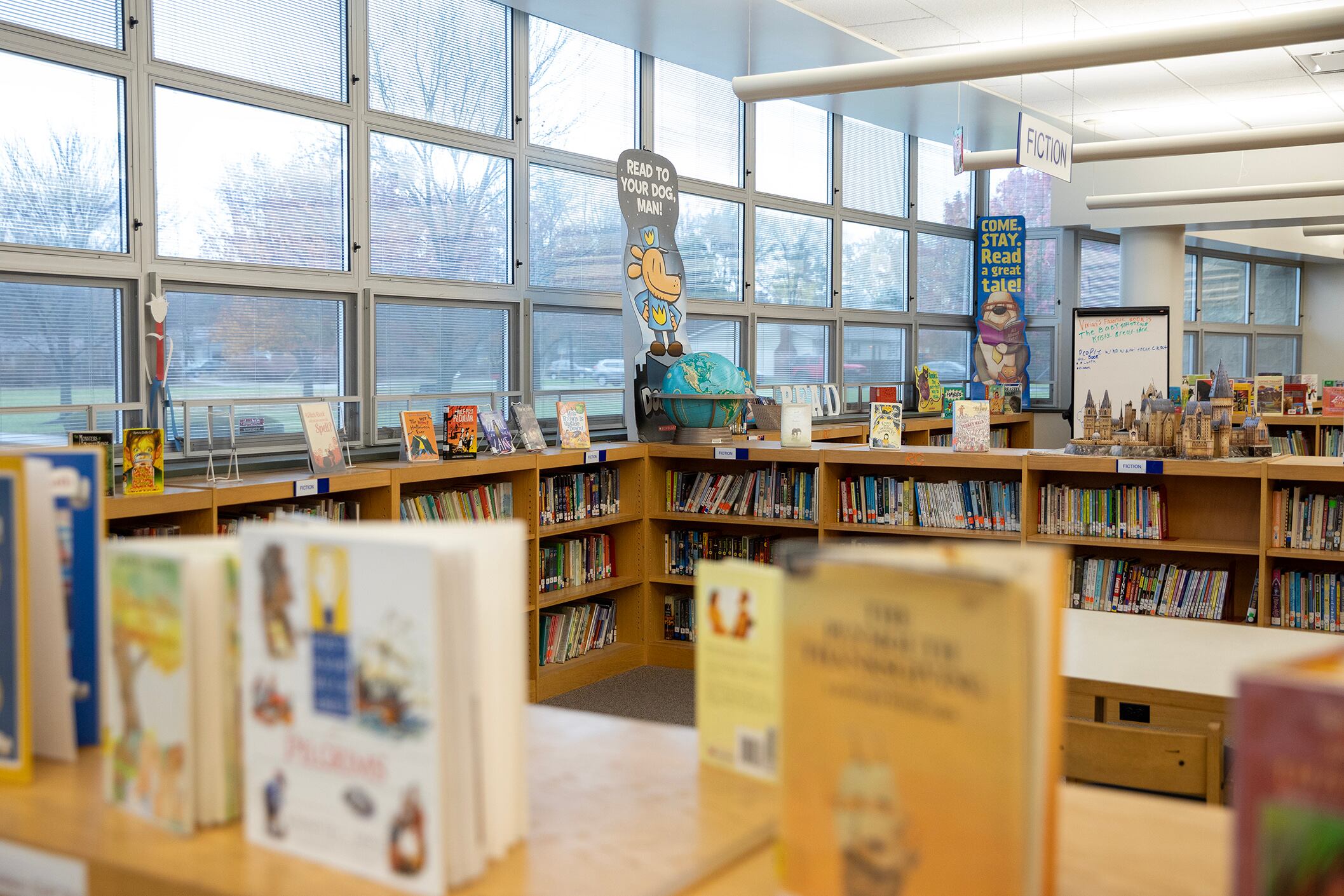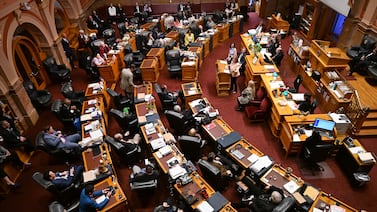Colorado’s public schools would be required to have policies governing school library book challenges, and only parents with students at a school would be allowed to challenge a book in that school’s library.
These are some of the provisions of a school library bill that cleared its first legislative hurdle Monday evening, advancing out of the Senate Education Committee in a 5-2 vote.
The bill represents the second attempt by Democratic lawmakers to curb school library book removals and protect school librarians from retaliation for doing their jobs. A similar school library bill died during the 2024 legislative session, though a separate one focused on public libraries passed.
The current school library bill comes as school library book challenges and removals have become more common in Colorado and the nation. One of the most high profile examples occurred last fall in the 2,600-student Elizabeth school district southeast of Denver.
Officials there removed 19 books from school library shelves because of what the school board deemed highly sensitive content. The decision led to a lawsuit against the district by the American Civil Liberties Union and a civil rights complaint by a middle school dean who was fired after she objected to the book removals.
Besides requiring public schools, including charter schools, to have policies governing library book challenges, the library bill would only allow challenges by parents or legal guardians with a child in the school where the challenge is made. The bill would also limit reviews of challenged books to once every two years. Finally, the bill would bar a school library worker from being fired, demoted, or punished for refusing to remove a challenged book before it’s been reviewed.
On Monday, dozens of parents, librarians, students, and others spoke about the bill, most of them in support. Many said they wanted children to have access to diverse perspectives and develop critical thinking skills.
Hripsime Vartanyan, an exchange student from the country of Georgia, said libraries “provide knowledge, information, and space for discovery.” She said her parents grew up with restricted access to books because Georgia was still under the influence of the Soviet Union at the time, but her own experience was much different.
“When I first heard about books being banned in the U.S … I was really confused,” she said.
Meg Reed, a Colorado grandmother who supports the bill, said people who want to remove library books say they’re for parent rights, but they want to dictate reading choices for everybody.
“While they’re completely free to deny their own children access to whatever books they might find offensive, they do not have the right to make those decisions for other parents.”
Matt Cook, director of public policy and advocacy for the Colorado Association of School Boards, said his organization supported the version of the bill that was approved Monday. He said most school districts already have book challenge policies that meet or exceed what’s in the bill.
Several of those who spoke against the bill said they don’t want books with sexually explicit content available to students.
Erin Meschke, a Boulder resident who opposed the bill, asked lawmakers to “protect Colorado children from pornography disguised as inclusive graphic novels.”
Some opponents also objected to the provisions requiring book challengers to be parents and to the two-year period before a challenged book could be reviewed again.
Of several districts recently surveyed by Chalkbeat, most reported facing no book challenges in the last 18 months. They include Douglas County, Colorado Springs 11, Cañon City, Mesa County Valley District 51, Eaton, and the Brighton-based 27J.
Academy 20, based in Colorado Springs, and Greeley 6 both reported multiple book challenges. In Academy 20, four books were challenged over four months during the 2023-24 school year: “The Hate U Give” by Angie Thomas, “This One Summer” by Mariko Tamaki and Jillian Tamaki, “This Book is Gay” by Juno Dawson, and “My Hero Academia: Vigilantes Vol.1″ by Hideyuki Furuhashi. District officials decided to keep all of them on library shelves.
In Greeley, members of the public delivered thousands of book challenge forms to the school board at a December 2022 meeting. Scores of people submitted the challenges, but they were about the same 11 books. Four other books were challenged that school year.
District officials ultimately reviewed 11 of the 15 books, including titles such as “Beloved” by Toni Morrison, “God of Small Things” by Arundhati Roy, and “Me and Earl and the Dying Girl” by Jesse Andrews. They decided to keep the 11 books in school libraries. Four of them got additional restrictions. For example, parents of students checking out “Beloved” get a phone and email notification, and a “complex themes and resources” label was added inside the back cover of “Tricks” by Ellen Hopkins.
Four titles were not reviewed for their content, either because they were not in any school libraries or had already been removed due to lack of usage, according to district records.
Ann Schimke is a senior reporter at Chalkbeat, covering early childhood issues and early literacy. Contact Ann at aschimke@chalkbeat.org.







